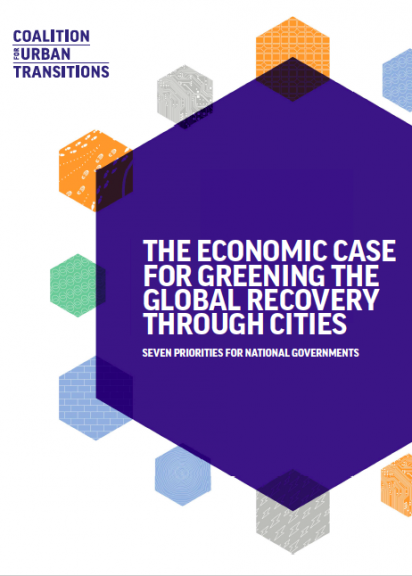The Economic Case for Greening the Global Recovery through Cities: 7 priorities for national governments


Cities have been at the epicentre of the COVID-19 pandemic, but they also offer an opportunity to accelerate the transition to a resilient, equitable and low-carbon future. This paper explores seven priorities for national governments, as well as three cross-cutting measures, which can yield substantial economic dividends, rapidly create and protect millions of jobs for vulnerable populations and deliver quick and durable health and environmental benefits for citizens, all whilst contributing to long-term urban resilience.
Investing in cities as part of COVID-19 recovery packages can help national governments create much needed economic security and jobs today, whilst making rapid strides towards a low-carbon, resilient, and inclusive future tomorrow.
Cities have been at the epicentre of the COVID-19 pandemic, but they also offer an opportunity to accelerate the transition to a resilient, equitable and low-carbon future. The pandemic has shone a spotlight on cities as the confluence of people, economy and assets; when they stop working, so does the global economy. National government leadership and investment is critical to complement the green investments that mayors and local governments are making, or plan to make, within their urban recovery strategies to build a sustainable and resilient recovery.
Through seven priority areas for investment, national governments can yield substantial economic dividends, rapidly create and protect millions of jobs for vulnerable populations and deliver quick, durable and inclusive economic, health, and environmental benefits for their citizens, all whilst contributing to long-term urban resilience.
The paper also includes three cross-cutting reforms to enhance the impact of the sectoral recommendations above:
The paper provides actionable content focused on the ‘what’ and ‘how’ of a green recovery. It is co-authored by prominent experts from a range of partner organisations:
The paper is funded by The Resilience Shift in support of its aims to accelerate a safe, sustainable and resilient future. It believes that national governments must not miss this unique opportunity to invest in a low carbon, resilient, and prosperous future for our urban centres as they shape their post-COVID-19 fiscal stimulus packages.